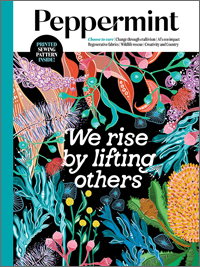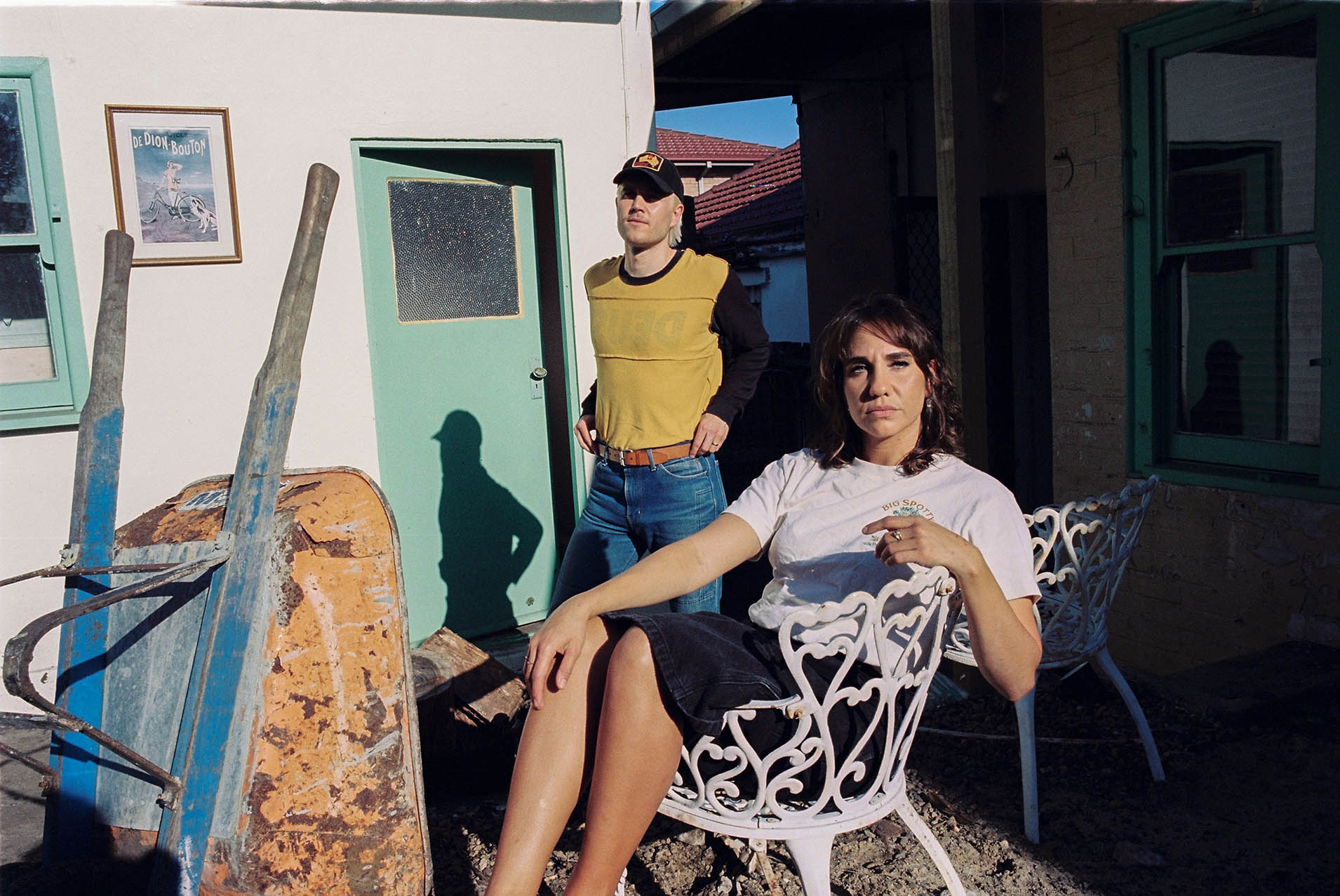
Crickets, Choirs and Country: Cooee’s Debut Single is a Love Song to Matriarchs
There’s a stillness in the opening of ‘Sacred Women’s Ways’ – the quiet hum of crickets recorded on Cammeraygal land, the breath between beats – before the voices rise. It’s the kind of track that draws you in with the warmth of poetry and the power of story, as much reverent offering as it is a musical release.
This is the debut single from Cooee, a new creative project by Gunai multidisciplinary artist and poet Kirli Saunders (OAM) and producer-musician Mark Chester Harding. Kirli and Mark met while performing with Jack River for triple j’s Like A Version in late 2023, just as Kirli’s poetry collection Returning (Magabala Books) was released. Drawn to the lyrical rhythm of her words, Mark began composing around them, and the duo’s creative partnership quickly blossomed.
Their debut track, ‘Sacred Women’s Ways’, borrows from Kirli’s poem of the same name, and is a tender, powerful tribute to matriarchal strength. Rooted in feminine sovereignty and cultural continuity, ‘Sacred Women’s Ways’ features the Shoalhaven-based First Nations Women’s choir Mudjingaal Yangamba and percussion from Harry Day (Middle Kids) – as well as crickets originally recorded during the very first demo. The project feels deeply personal – Kirli and Mark co-create artwork, vocals, melodies and visuals, and involve friends and Mob who are musicians in their process, too. We caught up with the duo to talk collaboration, poetry as song, and why storytelling is at the heart of Cooee.
ALBUM PHOTOS: T W BAKER. RECORDING/CHOIR PHOTOS: LILLIE PATON. ALL OTHER PHOTOS SUPPLIED BY COOEE.
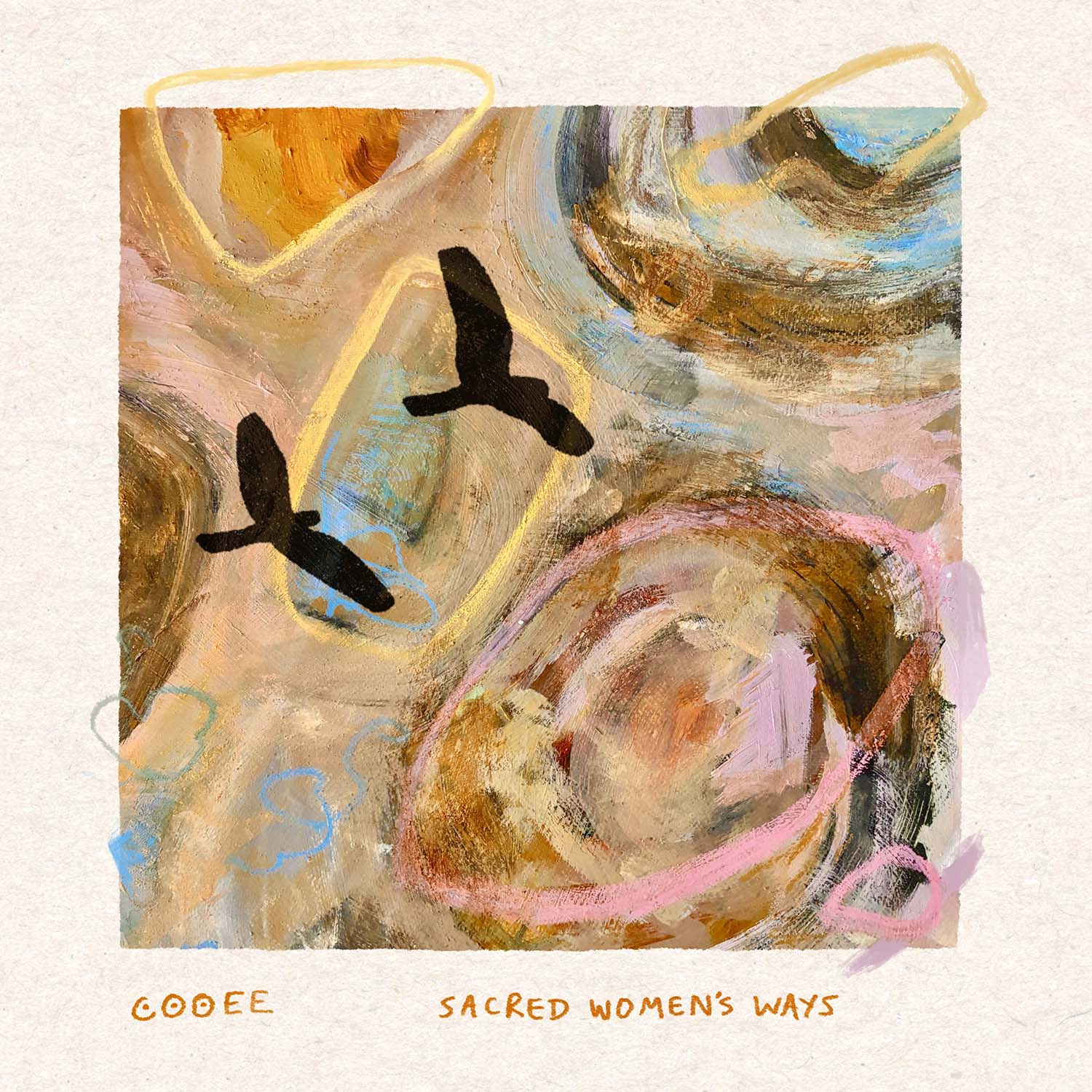
What does the ‘Cooee’ project mean to you? How would you describe it?
Kirli: For me, Cooee is a dream come true. I’ve always wanted to sing and write music, but never had the chance to do so. So when I met Mark and he started sharing WhatsApp audio notes of what my poems could sound like as songs, I was ecstatic. We quickly wrote a whole body of work together. And it just keeps getting better when we bring in friends, and especially Mob, who are musicians. There’s so much collaboration in every element of our process, and we both really value this way of working.
Mark: Cooee is about two friends making music and art, telling stories and collaborating with amazing Australian artists.
Kirli: I grew up Cooeeing in the 160,000Ha of bush behind my house, shouting out to my siblings when we were playing or shouting it with them to whoever would call it back. We were always stoked when someone did. Cooee is derived from Guuwii, a Dharug phrase which was adopted by white settlers and became part of our nation’s shared language. It’s a phrase I think most Australians would know – and may have called across a valley at some point.
It’s playful, nostalgic and something blak at its core, and I think our music project is also this.
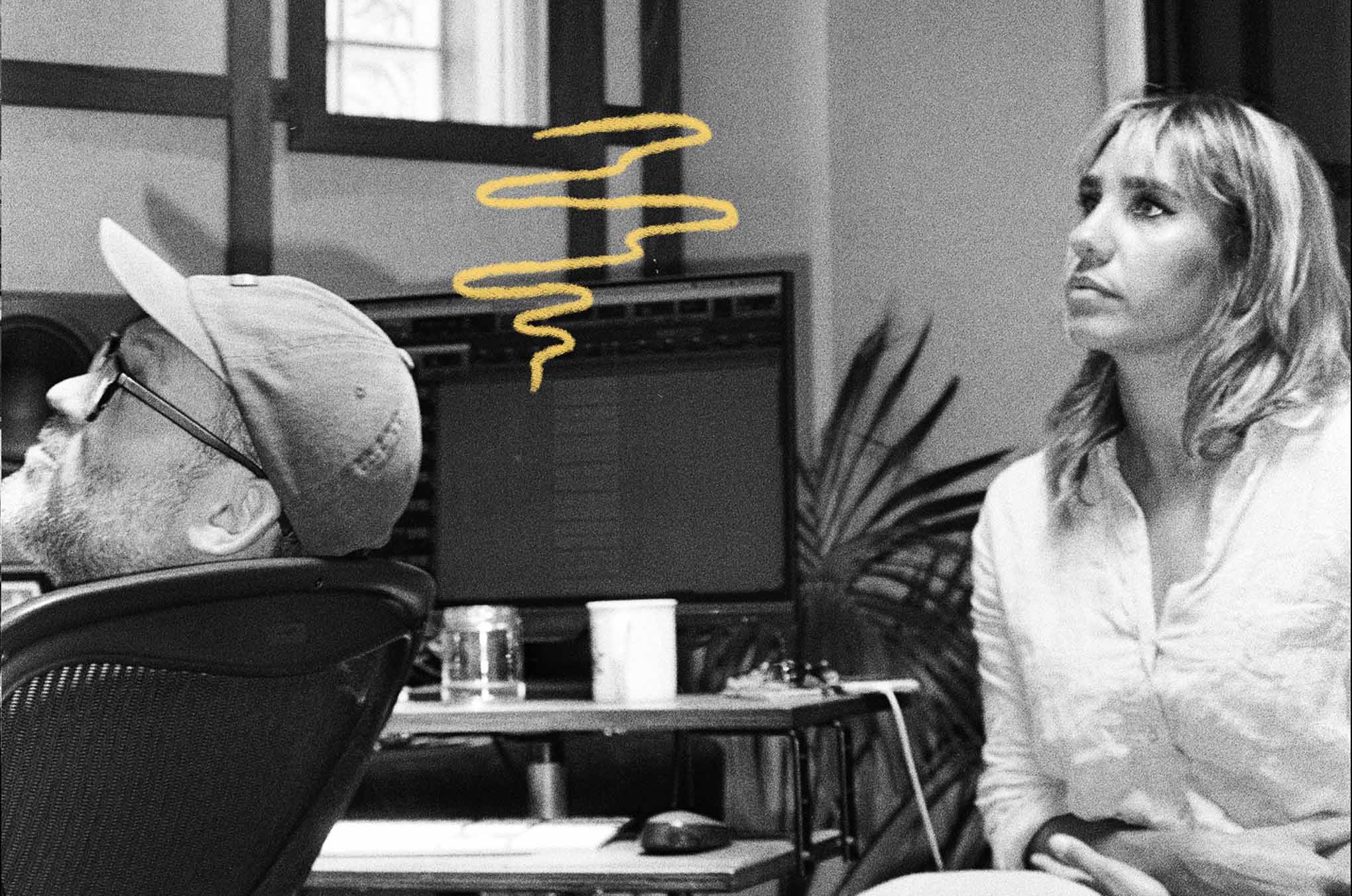
What drew you both to work with each other, and what’s the actual collaboration like?
Mark: Kirli’s insatiable desire to create and learn spoke to me and made me want to collaborate with her. We were the first to arrive at rehearsal for a Jack River Like A Version in 2023. Kirli was scribbling away at an artwork, and pretty quickly, we started sharing our various illustrations and paintings. Holly (Jack River) had told me Kirli was interested in making music but had never performed before. I thought it was such a brave thing to do, to turn up to Like A Version with no live music experience. I love jumping in the deep end with creative projects, so I knew Kirli and I would get along.
Kirli: Honestly, how amazing is Mark Chester Harding. The moment I met him, I thought ‘I wanna be this guy’s friend’. He’s a feminist, one of the kindest men I know, and truly talented as a musician and a visual artist (please go check out his printmaking and solo music). Working with him is one of the greatest treats. We are really alike in some ways (both visual artists and big dreamers and doers), but then totally different in others (I’m all gung–ho and Mark is patient and a perfectionist), and the complementary and contrasting parts all come together to make Cooee. Working with him is the best.
‘Sacred Women’s Ways’, your debut single, just dropped – what is the message at this track’s heart?
Mark: I first came across Kirli’s poem [also titled ‘Sacred Women’s Ways’, from her poetry collection Returning] while writing the demo. The thing that stuck out to me was Kirli’s ambition to continue these ‘ways’ that have been passed down for generations. The song has a great reverence for sacred women, but I like that it’s as much about respect as it is aspiration. ‘I’ve been trying to do the same for our mob’ – I see Kirli live these words in her work and life.
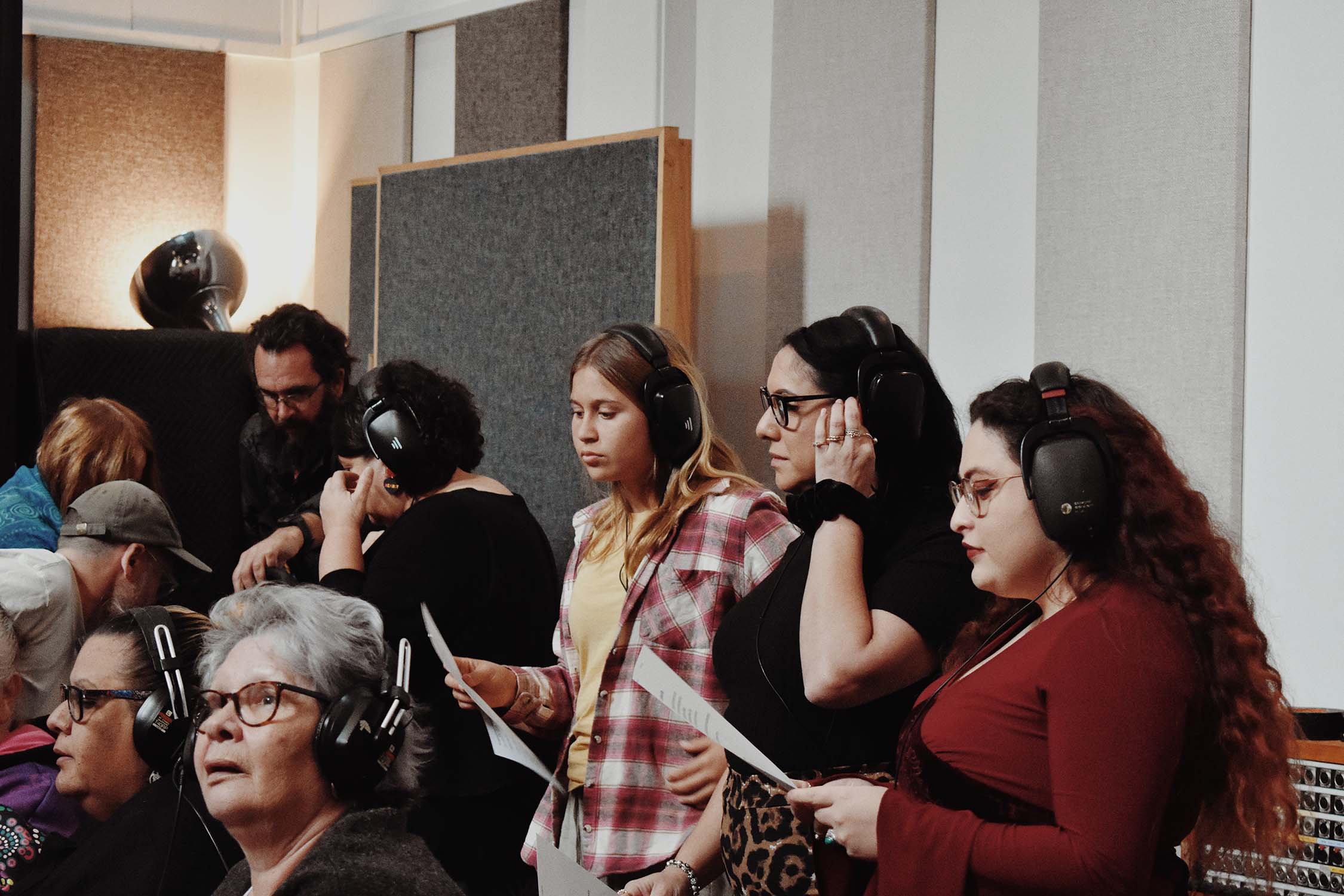
You collaborated with the First Nations women’s choir Mudjingaal Yangamba on the track, and it just adds an extra level of magic. What was it like working with them, how did you connect for this song?
Kirli: I’m a big fan of Mudjingaal Yangamba, a First Nations South Coast women’s choir, who sing in local languages. My friend and proud Worimi woman, Nicole Smede, is an incredible artist and singer-songwriter, and she is a dedicated member of the choir. So we got to yarning and went from there. It was surreal to be singing in our languages, and especially to be singing songs about the matriarchy with such strong, staunch, and loving Aunties and Sissys. Working with them and the other Mob on this project has definitely been a highlight for me.
Is song a big part of First Nations storytelling?
Kirli: Absolutely, we’ve been telling stories through song for 60,000 years +++! It feels so important to be sharing our words this way, like our Old People have done for all times.
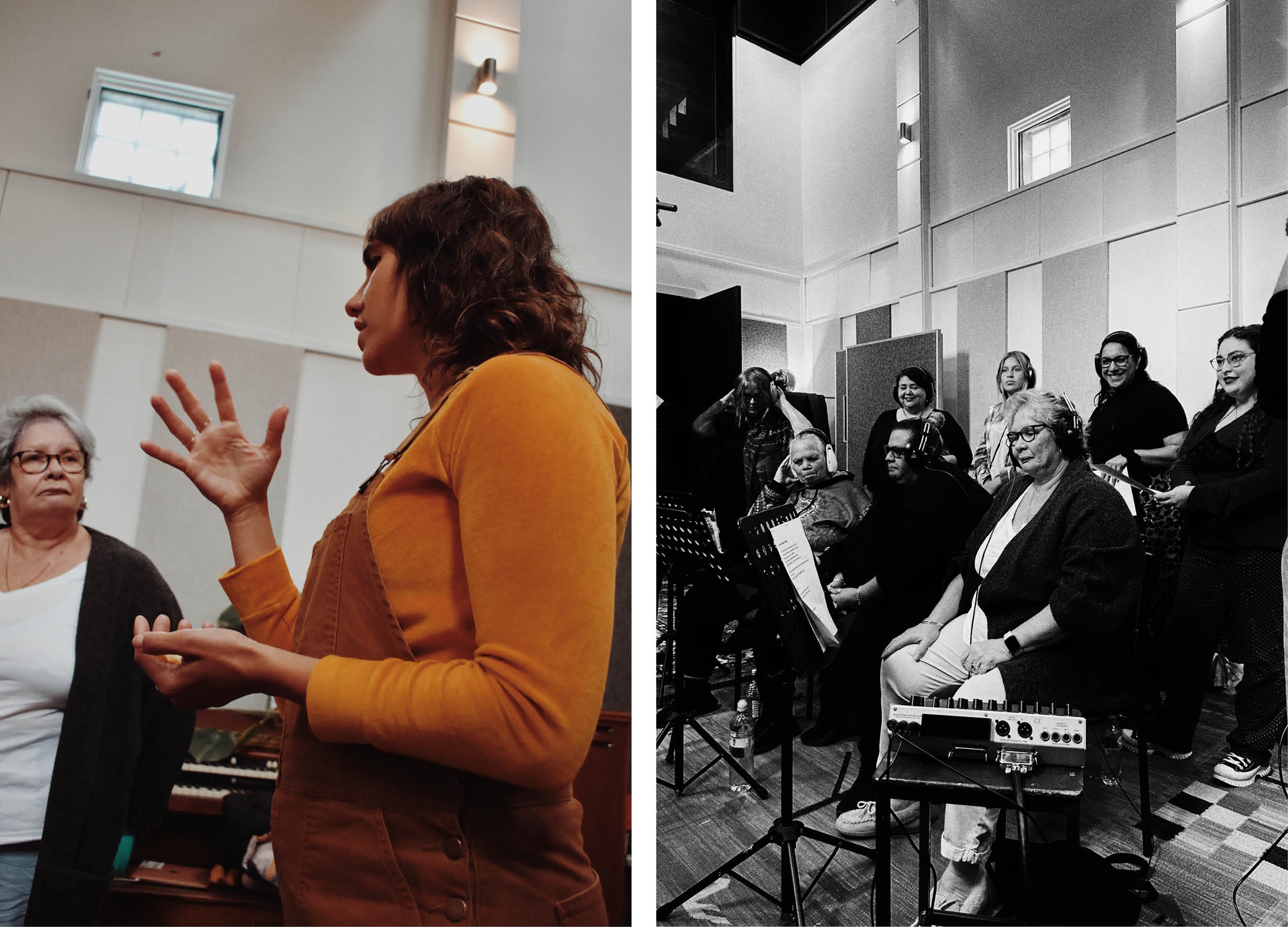
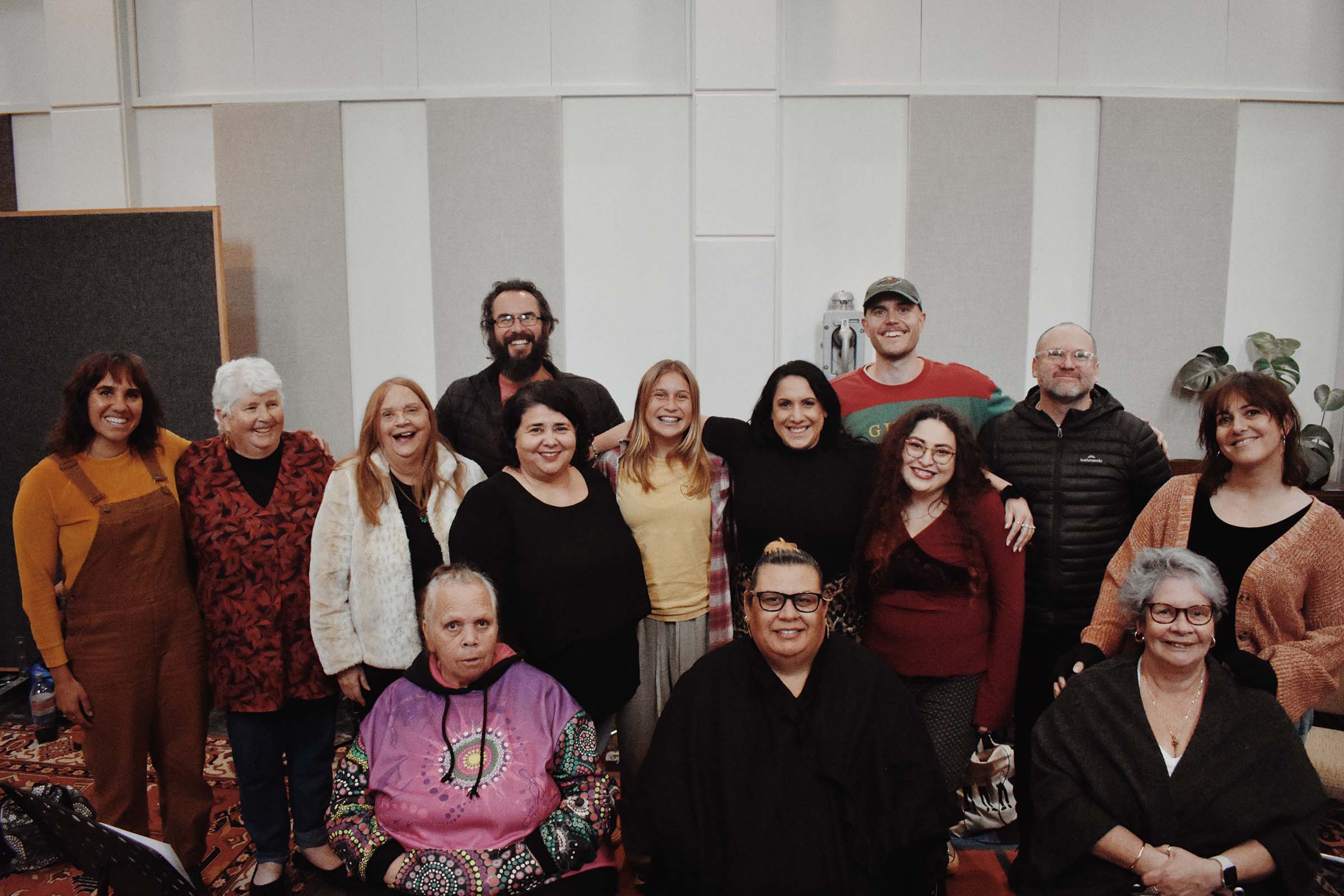
How does music connect you to Country?
Kirli: Country gives us the music, and we learn how to sing and play by listening to the land. The language we use to speak and the instruments to bring those stories to life – they come from Country too. And then, we are where we come from. I’m Gadhungal Marring, a person belonging to the sea – so that Salt Water Country, our land, seas and skies offer endless inspiration. And when I write and speak and dance and sing, I want to honour that special Country and all the people who belong to her and who carry her song.
Mark: All of Kirli’s storytelling feels very coastal to me. I recorded the original demo on Cammeraygal land and decided to keep the crickets from that first demo in the master recording. The song feels like a road trip, sitting in the passenger seat, watching the gum trees whiz by.
Mark, the song sounds deceptively simple, given that it went through a few iterations – can you tell us a bit more about how it came to its current version?
I crave simplicity in music production. Originally, I’d demoed the song as this big 80’s driving ballad, then freaked out and attempted a sort of orchestral rock, Gang of Youths-y thing. Finally, we landed back on the driving feel but with reference to some great Aussie bands like The Triffids and Icehouse.
Country gives us the music, and we learn how to sing and play by listening to the land. The language we use to speak and the instruments to bring those stories to life – they come from Country too.
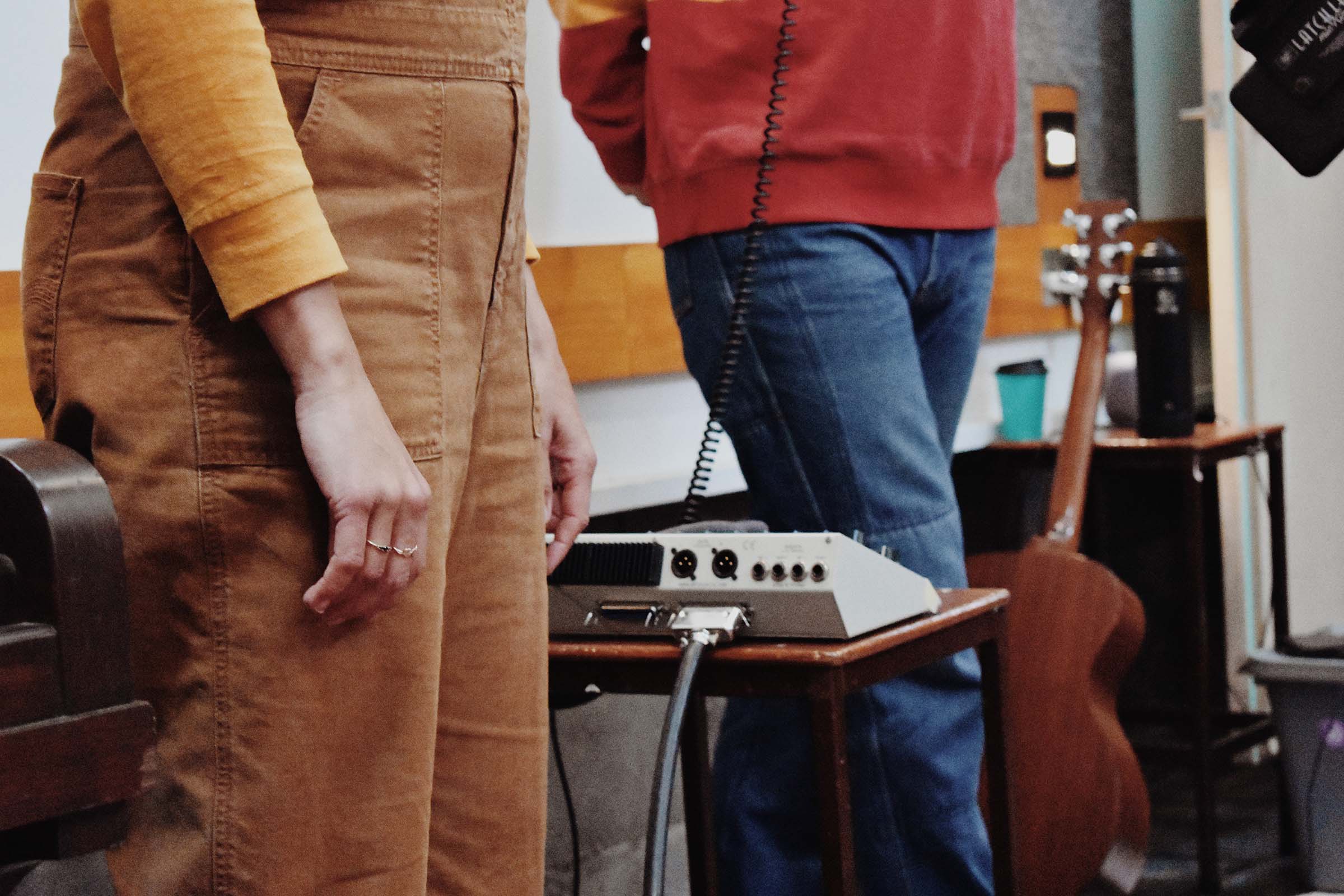
Which part of the song resonates with you the most, is there a moment that gives you goosebumps?
Kirli: The lyrics in the bridge say ‘Nothing could hide the tideline from the moontime memory of a woman, nothing could hide the tideline from you’; I wrote this during a time of big flooding on the coast, when lots of families were displaced from the climate crisis. Simultaneously, there was an uprising in parliament for the rights of women, especially around gendered violence.
These lyrics point to the power of us witnessing each other, truly loving and seeing each other, our struggle, our magic, our overcoming and also the power of our intuition, our sacred women’s ways to guide the way through hardship.
Mark: The texture of the piano and the lilt in Kirli’s voice when she first enters are really entrancing. To me, it matches the mysticism of the opening lyrics perfectly, ‘the day we met I eyed you shyly, not sure how your magic might arrive’.
Kirli, can you touch on some of the differences (and similarities!) between writing poetry and songwriting?
I think they’re one and the same! If I just read the lyrics of the songs I love, without having heard the melody, they’d be poems I adore, and with the music, they’re the songs that I live by.
When Mark and I write, we’re often reimagining existing poems from my poetry collections, Eclipse (Allen & Unwin 2025), Kindred (Magabala, 2019) and Returning (Magabala, 2023) and finding their melody. In the process, sometimes we massage the passages to find synergy in the syllables or word count. We swap sections around, repeat phrases or write new ones to expand a verse. It’s a kind of dance that happens on the page, shuffling until the poem becomes song.
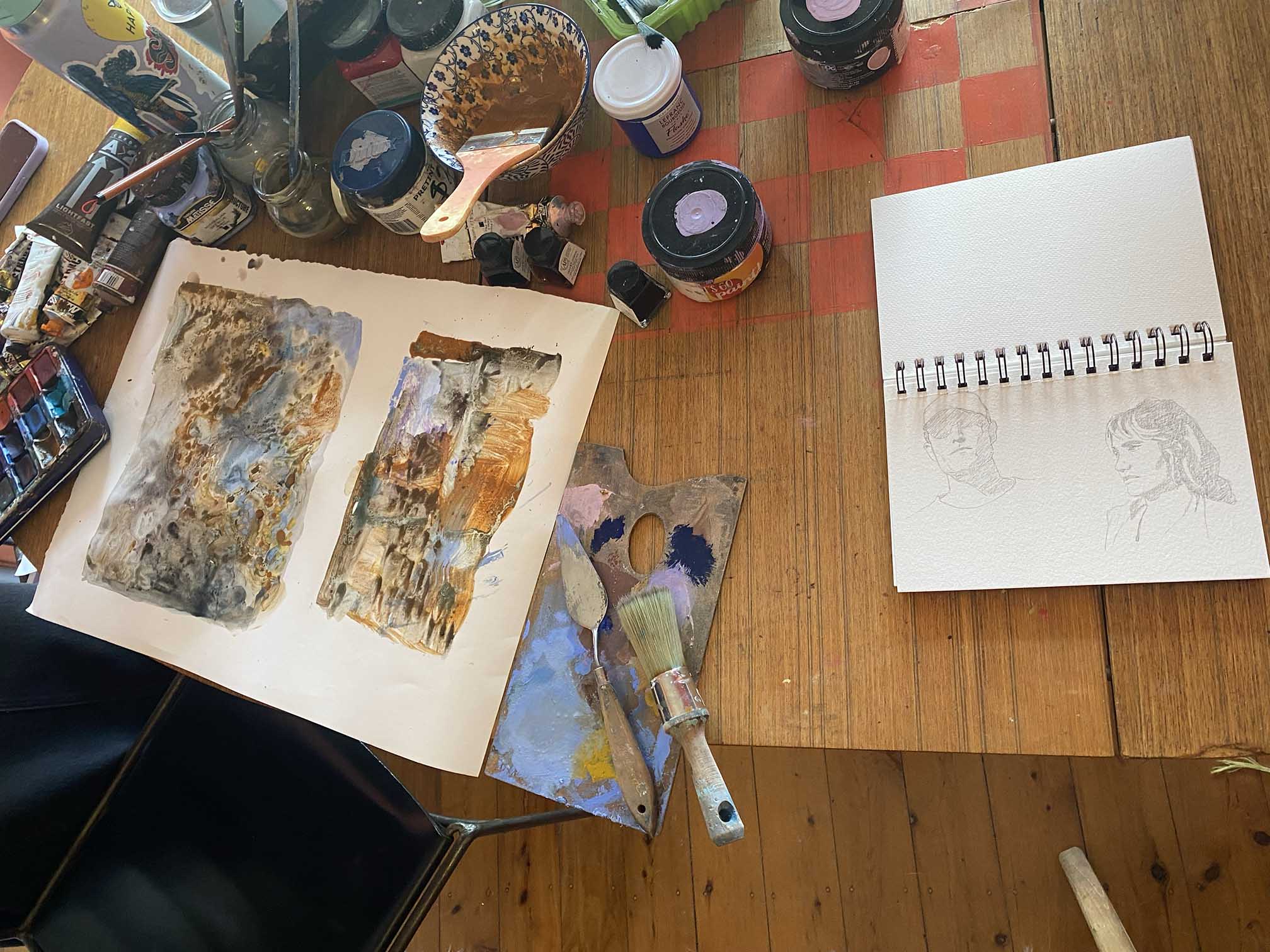
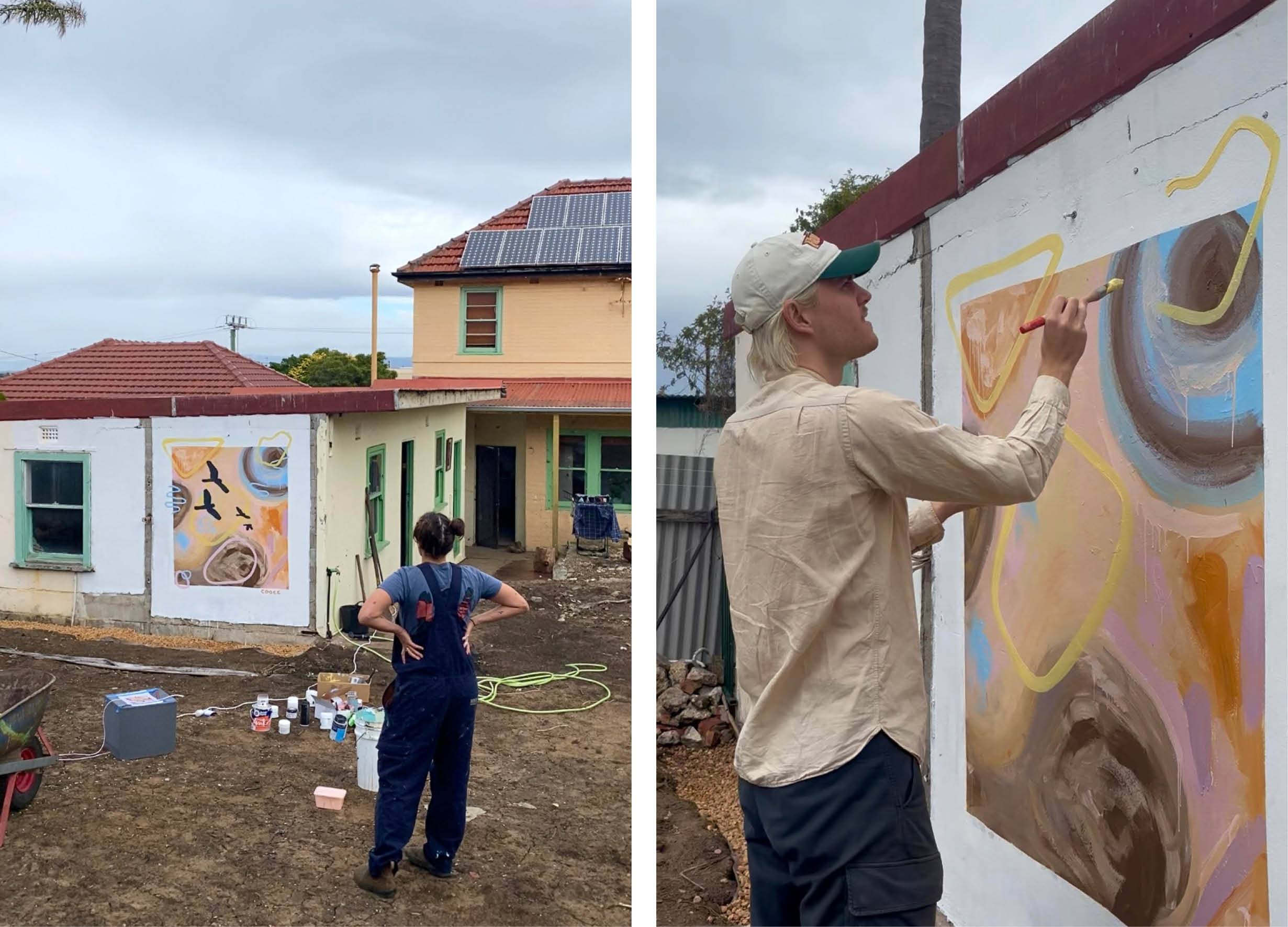
We love the beautiful artwork created for the track’s release – can you share about the creation, and its message?
Kirli: The beauty of having two visual artists on a music project is that the album artwork is something we spend a lot of time thinking about. The palette is a wash of blue, reminiscent of sea, river and open skies. Ochre gathered on Dharawal and Wodi Wodi lands, to weave in sand, stone and grasses. And pinks and purples of neon sunsets. The shapes are organic, like a topographic map, and then Mark has tied in his stunning print-making practice to include some important birds, black cockatoos.
And finally, what’s next for Cooee?
Mark: We’re working on so many different parts of the Cooee world. We’ve got a bunch of songs to share as well as illustrations, paintings, murals, and videos.

